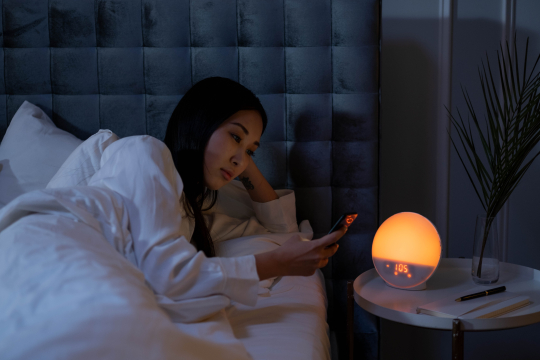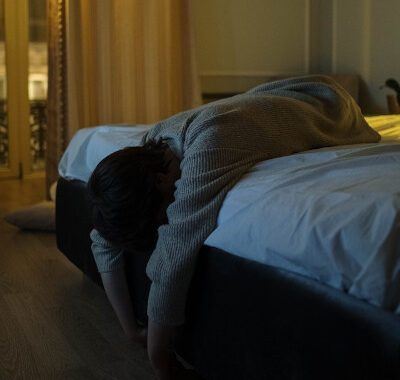
Can You Get Insomnia During Alcohol Withdrawal?
Alcohol withdrawal is often a long and difficult process, but it is also the most essential measure that must be taken on the long and winding road of addiction recovery. Withdrawal symptoms cause many people to relapse and resume using drugs or alcohol. These withdrawal symptoms include insomnia, which has been shown to be a prevalent symptom of alcohol withdrawal.
Table of Contents:
The connection between and alcohol withdrawal
The genesis of alcohol withdrawal transpires when an individual that is dependent on alcohol abruptly stops drinking. Mild withdrawal symptoms might consist of a vanishing appetite or pounding headaches, while severe withdrawals can include fever and even seizures.
Withdrawals can also cause insomnia, a sleep disorder where the individual has trouble with falling and/or remaining asleep. Short-term, or acute insomnia can last anywhere from a single evening to several weeks. Long-term, or chronic insomnia tends to cause serious sleep issues for a minimum of 3 nights a week for multiple months on end.
Disruptions to the sleep cycle are very common during the outset of recovery from alcohol dependence and could linger for months on end in spite of uninterrupted abstinence.

In an early observational study, more than half of a sample group of 40 alcoholic male inpatients developed and were showing signs of insomnia during the first week of alcohol withdrawal.
Alcohol withdrawal can impact sleep by:
- Impacting the quality and duration of REM sleep
- Disrupting the production of Gamma-Aminobutyric Acid (GABA) transmitters that help regulate sleep
- Disrupting normal sleep cycles, making it difficult to fall and/or stay asleep throughout the night
How can you treat alcohol dependence and insomnia?
The treatment of alcohol dependence and insomnia concurrently is ideal for achieving total recovery. Sleep disturbances can significantly escalate the possibility for relapse, so addressing these sleep issues during recovery or detox can reinforce abstinence.
The most effective way to treat alcohol dependence and insomnia is with professional medical care.
Why do you need professional detox?
Anyone that has been a heavy drinker for an extended period of time may experience serious physical and mental complications if you stop or even decrease the amount of alcohol you consume. This is referred to as alcohol withdrawal. For those who have the occasional glass of wine or beer, it’s doubtful they will encounter withdrawal symptoms if they were to stop.
The symptoms of alcohol withdrawal range from mild to serious, depending on the volume consumed and length of time indulging in heavy drinking.
Mild withdrawal symptoms
Mild withdrawal symptoms can appear within a mere 6 hours after finishing your most recent drink and can include:
- Insomnia
- Inability to focus
- Anxiety
Serious withdrawal symptoms
Serious withdrawal symptoms can begin to manifest in as little as 12 hours or could take two full days to appear. These symptoms may include:
- Headaches and/or Migraine
- Nausea
- Seizures
Delirium tremens
Delirium tremens, often referred to as DTs, usually start within the timeframe of 48 to 72 hours after your last drink. DTs are rare but harsh symptoms that involve delusions and hallucinations. Less than 5% of people experiencing alcohol withdrawal encounter these symptoms, which can include:
- Fever
- High blood pressure
- Disoriented and confused state of mind
- Elevated heart rate
Professional medical care can help reduce the severity of symptoms and make the withdrawal process as comfortable as possible. Treatment can also help address symptoms such as insomnia so you can get the sleep you need to successfully complete detox.
When to get help
Some people may be dependent on alcohol without realizing their drinking has become a problem they need help with. If you find yourself in scenarios where you are unable to control the volume of alcohol you drink or the duration of your drinking, you may need help dealing with alcohol dependency or addiction.
Facing the challenge of quitting drinking is not a simple and smooth process, but take a moment to consider what heavy drinking could be costing you. If you have made the decision to get treatment and feel you are ready to leave a life of alcohol dependency behind you, speak to a doctor to determine the type of care and treatment needed.
Private in-home detox and addiction treatment services
Insomnia can make getting through withdrawal challenging if not impossible. Fortunately, professional care can help you get through your symptoms and achieve sobriety. Elite Home Detox has designed our in-home detox and addiction treatment services to accommodate the most discerning of patients – including executives, celebrities, and those who seek exceptional care and service – with complete discretion. If you’re ready to start your recovery journey, give us a call today or book an appointment using the button below!



 Harsh Brar is a Board Certified Family Nurse Practitioner specializing in addiction medicine and pain management. He holds a Master of Science in Nursing from Samuel Merritt University and ensures all Elite Home Detox clinical content aligns with current medical safety standards.
Harsh Brar is a Board Certified Family Nurse Practitioner specializing in addiction medicine and pain management. He holds a Master of Science in Nursing from Samuel Merritt University and ensures all Elite Home Detox clinical content aligns with current medical safety standards.